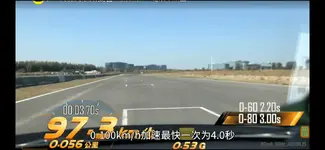California literally aren't allowed to apply their own standard that deviates from the EPA national standard. The EPA hit them with a serious rulemaking hammer a few years back and then flat-standardized the whole country on the existing "most strict" baseline which happened to be the CARB specs at that time. We're still in the transition period where other states are harmonizing their regulations with CARB, which is why so many have done so at this point... but the objective isn't to give California control over the national market. The objective is to make CARB itself obsolete (by superceding it nationally) without forcing California to rework their own regulations to something less environmentally sound.Why should the majority of the United States be held to one states emission standards? Does not seem fair. Let California have their standards and just
don't sell in that state. The manufacturer simply clearly lists that the car in non-compliant to Calif standards on the Window sticker and the emissions sticker. If a buyer tries to register a non-compliant car in California, it will be denied. Should be the buyers responsibility to know what they are purchasing.

The problem is that California has continued to attempt to exert direct market power over the broader US market by forcing manufacturers to certify against their own particular reading of the standards, and go through an independent process to do so. In particular California doesn't recognize the exceptions and waivers that EPA grants to certain small manufacturers (SVMs) and requires those companies to get their own special dispensation from CARB (the state agency) in order to sell in the California market. This is actually against the EPA's guidance and I fully expect there to be a federal-state regulatory fight about it in the next few years, because California is creating unnecessary market burden on smaller companies in a way that works extremely in favor of market incumbents without meaningfully adding any environmental protection value.
The other states that conform to CARB environmental standards aren't involved in this... it's not actually about CARB "standards" being different, because they aren't supposed to be different on paper. This certification delay issue that Lotus is experiencing is probably purely about qualification for a California strict compliance waiver on the basis of small volume manufacturing.









